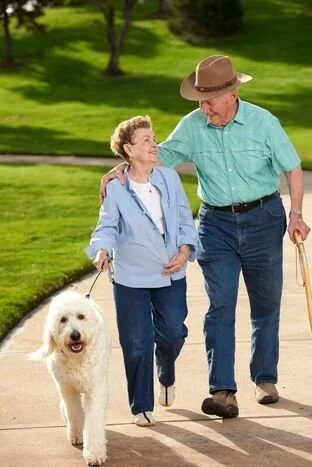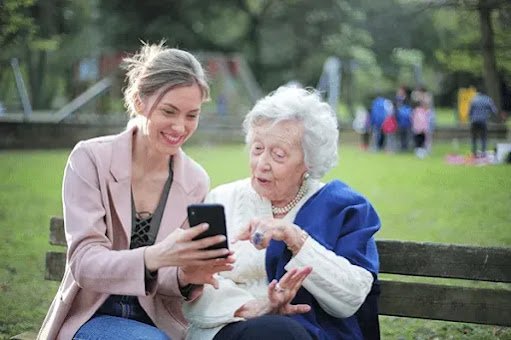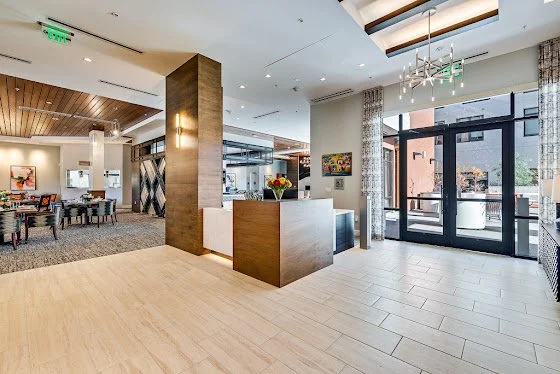Staying Hydrated Is Important as You Age
As you age in senior living in Portland, you can become dehydrated even if you think you are drinking enough water. As the years add up, the body changes. Total body water content declines. The kidneys are not as efficient at diluting the urine. And the thirst mechanism becomes blunted. When this happens, dehydration can start to have a negative impact on the body.
Dehydration can be confused with other conditions such as fatigue, confusion or urinary tract infections. You can also suffer from dry mouth and dry skin. The result is a reduction in the quality of your life.
But did you know that staying hydrated can affect almost every system in the body?
If you drink enough fluids you can increase blood volume. When this happens, your heart doesn’t have to work as hard to pump blood throughout the body. You also feel less dizzy or lightheaded when you stand up.
Fluid also lubricates the joints, reducing the stiffness of arthritis. It also helps keep the mucous membranes in your respiratory tract moist, reducing the risk of infection.
Keeping hydrated in assisted living facilities Portland can also play a role in maintaining cognitive function. Research suggests that mild dehydration that results in a 2% decrease in body weight can impair cognitive performance including reducing reaction time and episodic memory. In some cases, older adults can mistake the effects of dehydration as normal aging.
The daily recommendation for fluid intake is 2 litres. However, your needs may be higher or lower depending on your size, climate, and medical conditions. Keep in mind that fluid intake also comes from soups, herbal tea, milk, and high water-content fruits, such as melon. If you take diuretics to control high blood pressure, speak with your doctor or nurse to determine if you need to alter your goals to prevent both fluid retention and dehydration.
A good plan is to follow the 2 hour rule. Drink 1/2 cup of fluid every 2 waking hours. You may need to set reminders using a water bottle with marked measurements or a timer on your phone until it becomes a habit. Balance each cup of coffee with a cup of water to minimize the diuretic effects of caffeine.
Add flavor to your water to increase compliance. Add lemon slices, crushed berries, or cucumber ribbons to pitchers of water. Unsweetened sparkling water also adds variety without sugar. Some older adults prefer warm drinks in the summer months. While in senior apartments your body will absorb room temperature water just as efficiently as cold water.
You can also check on your hydration status by monitoring your urine colour. If it is light straw in colour, then you are likely consuming enough fluids. If it is a darker amber colour, then you need to increase your fluid intake. Sudden changes in weight can also be an indication of water imbalance in the body. Keep a scale in your bathroom and weigh yourself each morning at the same time.
Talk to your doctor, nurse or pharmacist if you have concerns. Fear of getting up at night to urinate can lead to older adults limiting their fluids in the evening. A strategy of voiding before bed and having a path lit with motion sensors can eliminate this problem.
Hydration can be one of the building blocks of a healthy aging process, which can help you have the energy you need to enjoy your life.



















